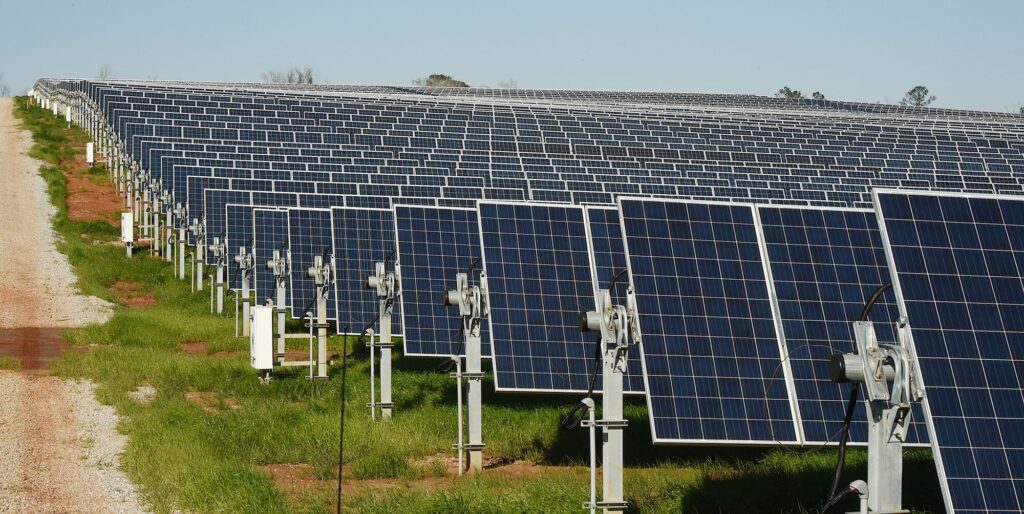As Alabama’s solar industry grows, the need for comprehensive workers’ compensation coverage becomes more critical. Solar Workers Comp in Alabama protects employees injured on the job while providing employers with financial security. This guide explores the intricacies of workers’ compensation for solar companies, covering legal mandates, benefits, and practical implementation strategies.
Solar Workers Comp in Alabama is not just a legal requirement but a critical component of any solar company’s operational strategy. The solar industry presents unique challenges and risks, including exposure to hazardous conditions such as working at heights, handling heavy equipment, and dealing with live electrical systems.
Why Workers Compensation Matters in the Solar Industry
The effectiveness of workers’ compensation goes beyond financial compensation—it also involves fostering a culture of safety. By prioritizing prevention, Solar Workers Comp in Alabama can reduce workplace injuries, thereby lowering claims and insurance premiums over time. Implementing a comprehensive safety program that includes regular training, hazard assessments, and employee engagement is a proactive approach to minimizing risks.
The Risks of Working in Solar
The solar industry involves physically demanding tasks and hazardous conditions. Workers often handle heavy equipment, work at heights, and deal with electrical systems. These risks increase the likelihood of workplace injuries, making workers’ compensation insurance essential for businesses in Alabama.
Protecting Employees and Employers
Solar Workers Comp in Alabama ensures injured workers receive medical treatment and wage replacement benefits. Simultaneously, it shields employers from potential lawsuits by providing liability coverage. This balance is crucial for maintaining a safe and legally compliant workplace.
Legal Requirements for Solar Workers Comp in Alabama
Understanding the intricacies of Alabama’s workers’ compensation laws is critical. The state mandates coverage for businesses with five or more employees, but nuances in the law, such as exemptions for certain worker classifications, can complicate compliance. Employers must accurately classify their workforce to avoid penalties and ensure adequate coverage.
State Regulations
In Alabama, employers with five or more employees must carry workers’ compensation insurance. This mandate applies to solar companies, ensuring workers injured on the job receive necessary benefits.
Exemptions and Exceptions
Certain categories, such as independent contractors and self-employed individuals, may be exempt from mandatory coverage. However, solar companies often hire contractors for specialized tasks. Employers should clarify worker classifications to ensure compliance with Alabama law.
Penalties for Non-Compliance
Failing to secure workers’ compensation insurance can result in severe penalties, including fines and potential business closures. Ensuring proper coverage is non-negotiable for solar businesses operating in Alabama.
Key Benefits of Solar Workers Comp in Alabama
This often includes a mix of full-time employees and independent contractors, each requiring careful consideration. Misclassifications can lead to hefty fines and legal complications, underscoring the importance of consulting with legal or insurance experts familiar with Alabama’s regulations.
Medical Coverage
Solar Workers Comp in Alabama covers medical expenses for injuries sustained while performing job duties. From emergency care to rehabilitation, employees receive comprehensive treatment without financial burdens.
Wage Replacement
Injured workers unable to return to work immediately receive wage replacement benefits. This ensures financial stability during recovery. Alabama’s workers’ compensation law typically offers two-thirds of an employee’s average weekly wage.
Permanent Disability Benefits
If an injury leads to a long-term or permanent disability, workers’ compensation provides additional financial support. This can include lump-sum payments or ongoing benefits based on the severity of the impairment.
Implementing Solar Workers Comp for Your Alabama Business
Solar Workers Comp in Alabama has a human element. Supporting injured employees during recovery is as important as preventing injuries in the first place. Employers can demonstrate care by offering mental health support, flexible work arrangements, and return-to-work programs tailored to individual needs. These initiatives not only aid recovery but also enhance employee morale and retention. Employees who feel valued and supported are more likely to remain loyal and productive, even after experiencing workplace injuries.
Choose the Right Insurance Provider
Selecting an insurance provider specializing in workers’ compensation for solar businesses is crucial. Compare policies, coverage limits, and premiums to find a plan tailored to your company’s needs.
Conduct Workplace Safety Training
Preventing accidents is the most effective way to reduce workers’ compensation claims. Solar Workers Comp in Alabama Offer regular safety training sessions, focusing on industry-specific risks such as electrical safety and fall prevention.
Develop a Comprehensive Safety Program
Create a workplace safety program that identifies potential hazards, enforces safety protocols, and encourages employees to report unsafe conditions. A proactive approach can minimize workplace injuries and improve employee morale.
Workers Compensation

Replace utmost of their lost stipend if they take time off from work to recover

Give death benefits, like helping pay for burial if they lose their life in a work-related accident

Cover their Medical care
Navigating Workers Comp Claims in Alabama
Solar Workers Comp in Alabama is more than a compliance issue—it is a cornerstone of sustainable business operations in the solar industry. By aligning with state laws, investing in safety, and prioritizing employee well-being, solar companies can ensure their workforce is protected, their operations remain uninterrupted, and their reputation as responsible employers is solidified.
Filing a Claim
When a workplace injury occurs, employees must report it promptly. Employers are responsible for filing the claim with their workers’ compensation insurance provider and the Alabama Department of Labor.
Resolving Disputes
Disputes over workers’ compensation claims can arise. Common issues include disagreements about the severity of injuries or eligibility for benefits. Employers should work with legal counsel to resolve disputes effectively while ensuring compliance with Alabama’s workers’ compensation laws.
Cost Factors for Solar Workers Comp in Alabama
Employers should also be prepared for potential disputes over claims, whether related to the severity of injuries or eligibility for benefits. Maintaining open communication and working collaboratively with insurance providers and legal counsel can help resolve these issues while ensuring compliance with Alabama’s laws.
Premium Determination
Insurance premiums are calculated based on payroll size, job classifications, and the company’s claims history. Solar companies employing high-risk workers may face higher premiums.
Reducing Costs
Employers can lower workers’ compensation costs by implementing rigorous safety measures and maintaining a low claims history. Regularly reviewing your policy can also uncover cost-saving opportunities.
Focus on Employee Well-Being
The process of selecting the right workers’ compensation insurance provider is another vital step. Solar Workers Comp in Alabama must evaluate providers based on their understanding of the industry, claims processing efficiency, and cost-effectiveness. Working with a provider that specializes in high-risk industries like solar can make a significant difference in the level of support and expertise offered.
Providing Mental Health Support
Workplace injuries often have psychological effects. Providing mental health support ensures employees recover holistically, reducing the likelihood of prolonged absences.
Offering Return-to-Work Programs
Return-to-work programs facilitate employees’ transition back to their roles after an injury. These programs help injured workers regain confidence and reduce costs associated with extended absences.
Conclusion
Solar Workers Comp in Alabama is vital for protecting employees and securing the future of your business. By understanding state laws, implementing effective safety measures, and choosing the right insurance policy, solar companies can create a safer and more productive work environment.
Investing in comprehensive workers’ compensation coverage ensures your business stays compliant and supports its most valuable asset—its workforce.
Workers Compensation
Get Better Workers' Comp Insurance
Get expert advice on owner exemptions, class codes, state rates, experience modifiers, audits and claims.
